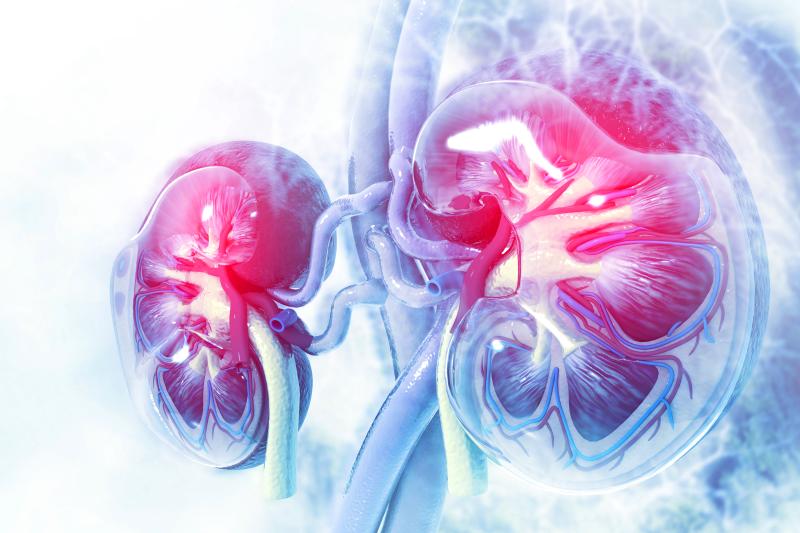
In patients with type 2 diabetes (T2D), factors such as higher body mass index (BMI) and HbA1c, diabetes complications, calcium oxalate and uric acid stone composition contribute to a heightened risk of kidney stone disease recurrence, as reported in a study.
The study included 1,617 T2D patients with nephrolithiasis, among whom 373 (23 percent) had a stone recurrence and 1,244 (77 percent) did not. Those who had recurrence were more likely to be younger (70 vs 74 years; p<0.001) and have lower baseline and current glomerular filtration rate (GFR; 93.0 vs 102.8 ml/min/1.73m2; p<0.001 and 78.7 vs 68.4 ml/min/1.73m2; p=0.001, respectively).
Of the patients with stone recurrence, 40 percent had asymptomatic stones, 43 percent visited emergency department, and 45 percent required a surgical intervention. Median time to recurrence was 64 months.
On multivariable logistic regression analysis, the following emerged as significant predictors of stone recurrence: high BMI (odds ratio [OR], 1.032, 95 percent confidence interval [CI], 1.016–1.047), elevated HbA1c (OR, 1.186, 95 percent CI, 1.012–1.277), diabetic neuropathy (OR, 1.839, 95 percent CI, 1.413–2.392), diabetic retinopathy (OR, 1.690, 95 percent CI, 1.122–2.546), and stone with calcium oxalate (OR, 1.955, 95 percent CI, 1.420–2.691) and uric acid composition (OR, 2.221, 95 percent CI, 1.249–3.949).
On the other hand, insulin and potassium citrate therapy (OR, 0.611, 95 percent CI, 0.426–0.87) and higher urine pH (OR, 0.500, 95 percent CI, 0.043–0.581) exerted a protective effect.
The findings suggest that good glycaemic control and urine alkalinization may be considered as important modifiable factors for recurrent stone prevention, according to researchers.